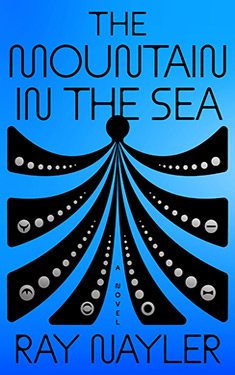Ray Nayler
Completed 3/24/2024, Reviewed 3/24/2024
3 stars
Besides reading the winners of certain awards like the Hugos and the Nebulas, I try to read as many of the nominees as I can. This book was nominated for a 2022 Nebula. I can see why. It has very pretty prose. The Nebula award is a peer award, so you can almost always count on the nominees having nice prose. Unfortunately, I didn’t think it translated into a great novel. It was weighted down by disparate plotlines that didn’t come together until the very end. The result was a lot of characters you only see every few chapters or so, and action that doesn’t seem to have anything to do with the main and most interesting plot, intelligent octopuses.
The main plot follows marine biologist Dr. Ha Nguyen, author of a celebrated book about octopus intelligence. She gets sent to island in an archipelago that is owned by the DIANIMA corporation. Along with Atlantsetseg, a seasoned security agent, and Evrim, the world’s first and probably last conscious android. Aside from a group of non-conscious Tibetan Monk androids, they are the only ones on the island. It is protected from all outside entities, civil and corporate. Around this island, octopuses seem to have some type of symbolic communication mechanism. It’s Dr. Ha’s dream to study this phenomenon.
At the same time, a mysterious person whose face and voice are disguised by a something like a cloud and a voice changer contacts Rustem, the world’s greatest neural network hacker, to break the code of the tightest neural network ever found. And amidst the Pacific, an AI slave boat illegally catches and processes seafood. This plotline follows Eiko, a former dive guide, and Son, a refugee from the octopus island. Son and all the inhabitants were evicted from the island, with some monetary renumeration, by DIANIMA when the corporation was acquiring the archipelago.
So yeah, a ton of plot, a ton of characters, and pretty language. I found it very hard to follow and had no idea where anything was going until the very end. It made for trudging experience. The book spends a lot of time with the idea of consciousness, whether it’s the octopuses, Evrim, the neural network Rustem is trying to break, or the slave ship’s AI. I was most interested in the octopuses and Evrim. Usually, I’m pretty amazed at authors who have multiple plotlines going parallel to each other. I think it takes a lot of talent to keep the reader interested and not confused. Unfortunately, I felt like Naylor couldn’t achieve that.
Character-wise, I kind of liked Dr. Ha and Evrim. I particularly liked Evrim, especially when they found out that their maker considered them non-conscious, only able to pass the last Turing test, but not actually self-aware. I did feel sorry for Eiko and Son taken by slavers and dumped on a processing ship, with almost no chance of ever being seen again. But with the way the book bounced around, I never fully empathized with any of them, and Rustem, not at all. Rustem also went by an alias, which confused me, thinking he was another character for a time.
The world building was almost good. It’s a near future world with very different states and mega-corporations. And with the neural network hacker, Tibetan monk androids, and an AI slave ship, one could say this was a cyberpunk kind of world. But it was also a first contact novel. And it’s also a pretty cerebral look at intelligence.
I give this book three stars out of five. What saved it from two stars was the main plot with the octopuses. I just would have liked a lot more interaction with them.

No comments:
Post a Comment